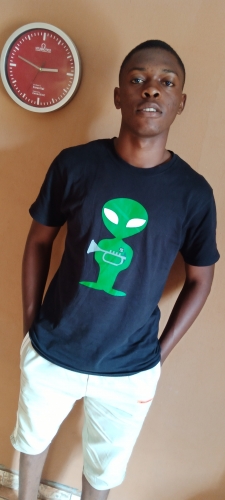profile/4441IMG_20200731_145020_573.jpg
Tejucoco

Facebook And Twitter Restrict Trump Accounts Over 'harmful' Virus Claim
~4.0 mins read
Facebook and Twitter have penalised Donald Trump and his campaign for posts in which the president claimed children were "almost immune" to coronavirus.
Facebook deleted the post - a clip from an interview Mr Trump gave to Fox News - saying it contained "harmful Covid misinformation".
Twitter followed by saying it had frozen a Trump campaign account until a tweet of the same clip was removed.
US public health advice makes clear children have no immunity to Covid-19.
What did Facebook and Twitter say?
A Facebook spokesperson said on Wednesday evening: "This video includes false claims that a group of people is immune from COVID-19 which is a violation of our policies around harmful COVID misinformation."
It was the first time the social giant had taken action to remove content posted by the president based on its coronavirus-misinformation policy, but not the first time it has penalised Mr Trump over content on his page.
Later on Wednesday, Twitter said it had frozen the @TeamTrump account because it posted the same interview excerpt, which President Trump's account shared.
A Twitter spokesman said the @TeamTrump tweet "is in violation of the Twitter Rules on COVID-19 misinformation".
"The account owner will be required to remove the Tweet before they can Tweet again."
It later appeared to have been deleted.
Twitter last month temporarily suspended Mr Trump's son, Donald Jr, for sharing a clip it said promoted "misinformation" about coronavirus and hydroxychloroquine.
But in March, Twitter said a tweet by entrepreneur Elon Musk suggesting children are "essentially immune" to coronavirus did not break its rules.
Elon Musk coronavirus misinformation stays online
What did Trump say in his TV interview?
Speaking by telephone to morning show Fox and Friends on Wednesday, Mr Trump argued it was time for all schools nationwide to reopen.
He said: "If you look at children, children are almost - and I would almost say definitely - almost immune from this disease.
"So few, they've got stronger, hard to believe, I don't know how you feel about it, but they've got much stronger immune systems than we do somehow for this.
"And they don't have a problem, they just don't have a problem."
Mr Trump, who is running for re-election in November, also said of coronavirus: "This thing's going away. It will go away like things go away."
How dangerous is coronavirus for children?
Children can catch and transmit the virus, but they run an extremely low risk of becoming ill from it.
Adults - and particularly older adults - are far more likely to be seriously ill and die from complications.
The largest study done so far, involving more than 55,000 hospital patients, found that only 0.8% were under the age of 19.
Half of all the people with confirmed coronavirus who were admitted to critical care units in England, Wales and Northern Ireland were 60 or older as of 31 July, according to a research charity.
A recent US study of coronavirus cases among 7,780 children from 26 countries found almost one in five patients had no symptoms. Another one in five developed lesions on their lungs during the infection.
Some 3.3% were admitted to intensive care units and seven deaths were reported, according to the research from the University of Texas Health Science Center at San Antonio.
A study from the London School of Hygiene and Tropical Medicine found that people under 20 were about half as susceptible to coronavirus infection as those over 20.
There have been some extremely rare cases of children developing an inflammatory syndrome similar to Kawasaki disease , and scientists are exploring a possible delayed immune response to coronavirus.
In June, Facebook said it had removed adverts for President Trump's re-election campaign that featured a symbol used in Nazi Germany.
The company said the offending ad contained an inverted red triangle similar to that used by the Nazis to label opponents such as communists.
Mr Trump's campaign team said the far-left activist group antifa uses the symbol and it was a reference to them.
The ads, which were posted on the site on pages belonging to President Trump and Vice-President Mike Pence, were online for about 24 hours and had received hundreds of thousands of views before they were taken down.
Are US schools reopening amid pandemic?
Hundreds of school districts around the country have scrapped plans to reopen as coronavirus infections have spiked in a number of US states.
Some 20 of the nation's largest 25 school districts have announced they will start remotely.
Among the schools that are not reopening is one attended by the president's son, Barron Trump, in suburban Maryland.
St Andrew's Episcopal School said in a letter to parents it would opt instead for virtual learning to protect the health of students, families and staff.
Last week Georgia's largest school district, Gwinnett County, returned to school campuses to start planning for autumn reopening.
A day later, 260 employees had been told to stay away from their schools because they tested positive for coronavirus, or had been exposed to someone else who had the infection.
One of the first school districts in the nation to reopen, near Indianapolis, Indiana, had a student test positive on the first day.
The child's parents had sent him to campus, knowing that his test result was pending, schools officials said.
Other students who had come within 6ft of the patient for more than 15 minutes were sent home to self-isolate for 14 days.
profile/4441IMG_20200731_145020_573.jpg
Tejucoco

Beirut Explosion: Angry Residents Demand Answers After Blast
~3.0 mins read
People in Beirut have expressed anger at the government over what they say was negligence that led to Tuesday's huge explosion.
President Michel Aoun said the blast was caused by 2,750 tonnes of ammonium nitrate stored unsafely in a warehouse.
Many have accused the authorities of corruption, neglect and mismanagement.
The blast killed at least 137 people and injured about 5,000 others, while dozens are still missing. A two-week state of emergency has begun.
"Beirut is crying, Beirut is screaming, people are hysterical and people are tired," filmmaker Jude Chehab told the BBC, calling for the people responsible to face justice.
Chadia Elmeouchi Noun, a Beirut resident currently in hospital, said: "I've known all the time that we are led by incompetent people, incompetent government [...] But I tell you something - what they have done now is absolutely criminal."
On Wednesday, the government announced that a number of Beirut port officials were placed under house arrest pending an investigation into the explosion.
The country's Supreme Defence Council insisted that those found responsible would face the "maximum punishment".
Meanwhile, Amnesty International and Human Rights Watch have called for an independent investigation into the blast. In a statement, HRW said it had "serious concerns about the ability of the Lebanese judiciary to conduct a credible and transparent investigation on its own".
What triggered the explosion?
The ammonium nitrate - which is used as a fertiliser in agriculture and as an explosive - had reportedly been in a warehouse in Beirut port for six years after it was unloaded from a ship impounded in 2013.
The head of Beirut port and the head of the customs authority both told local media that they had written to the judiciary several times asking that the chemical be exported or sold on to ensure port safety.
Port General Manager Hassan Koraytem told OTV they had been aware that the material was dangerous when a court first ordered it stored in the warehouse, "but not to this degree".
House arrest would apply for all port officials "who have handled the affairs of storing [the] ammonium nitrate, guarding it and handling its paperwork" since June 2014, according to Information Minister Manal Abdel Samad.
The ammonium nitrate arrived on a Moldovan-flagged ship, the Rhosus, which entered Beirut port after suffering technical problems during its voyage from Georgia to Mozambique, according to Shiparrested.com, which deals with shipping-related legal cases.
The Rhosus was inspected, banned from leaving and was shortly afterwards abandoned by its owners, sparking several legal claims. Its cargo was stored in a port warehouse for safety reasons, the report said.
What is the latest on rescue efforts?
Security forces have sealed off a wide area around the blast site, and rescuers have been looking for bodies and survivors under rubble while boats search the waters off the coast. Dozens of people are still missing.
Public Health Minister Hamad Hassan said Lebanon's health sector was short of beds and lacked the equipment necessary to treat the injured and care for patients in critical conditions.
As many as 300,000 people have been left homeless by the blast, Beirut's governor Marwan Aboud said.
He told the BBC: "Beirut needs food, Beirut needs clothes, houses, materials to rebuild houses. Beirut needs a place for the refugees, for its people."
Economy Minister Raoul Nehme said the country would have to rely at least partly on foreign aid to rebuild.
"The capacity of the state is very limited, and so is that of the central bank and the banks. We're not swimming in dollars," he told Sky News Arabia.
A number of countries have offered humanitarian assistance. Three French planes are due to arrive carrying 55 rescuers, medical equipment and a mobile clinic equipped to treat 500 people.
On Thursday President Emmanuel Macron became the first world leader to visit the country - a former colony of France - since the tragedy.
The EU, Russia, Tunisia, Turkey, Iran and Qatar are all sending relief supplies. The UK is also ready to send medical experts and humanitarian aid , Foreign Secretary Dominic Raab said.
Advertisement

Link socials
Matches
Loading...
